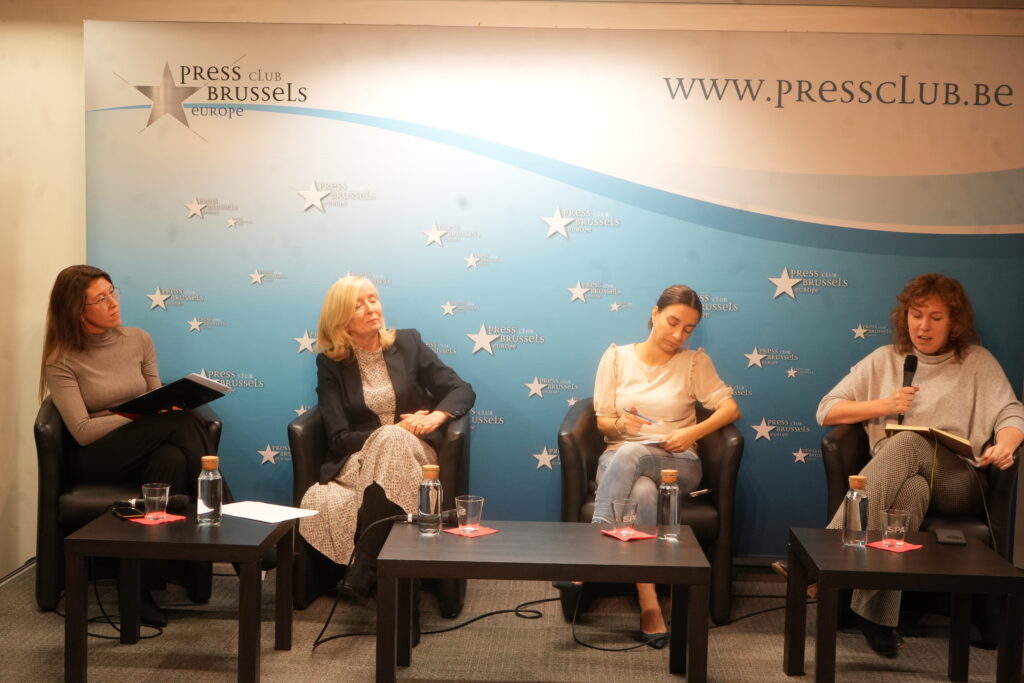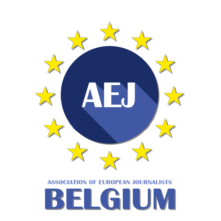By AEJ Belgium

Whilst her recommendations and decisions are not currently legally binding, the European Ombudsman, Emily O’Reilly, is calling for binding powers regarding access to documents – something that would help journalists, who often face delays and redacted documents, in their work.
“The default position should be that EU documents are publically accessible and only occasionally, for a well-justified reason, they are not,” O’Reilly said in her introductory remarks on Wednesday (20 October) at a workshop for journalists hosted in the Press Club by the Association of European Journalists (AEJ) Belgium.
“This does not appear to be the approach favoured by the European Commission,” she said, adding that there is a tendency for the Commission to reject documents, particularly in relation to personal data protection requirements or to protect international relations.
Public access to information is a cornerstone of democracy because it enables journalists and the public to hold governments and institutions accountable. However, this right is often threatened or restricted in various ways.
And that is why AEJ Belgium organised a special event where we had the privilege to hear from O’Reilly, a former journalist herself, who is preparing to step down after two mandates as the European Ombudsman. She was joined in a roundtable discussion by Swedish Socialist MEP Evin Incir and investigative journalist Lise Witteman, who also raised concerns about a lack of transparency in relation to the EU institutions.
“It’s so hard for journalists to exercise their right of access to EU documents. Often they are ‘self-censoring’ because the process is too cumbersome,” said Lise Witteman.
Last year, the EU Ombudsman found that the European Commission missed transparency deadlines in 85 percent of cases — a clear sign that there is still a lot of work to be done to ensure compliance with EU law.
Swedish Socialist MEP Evin Incir, who has been leading some of the European Parliament’s work on this subject, proposed that documents should be made public automatically if they are not released within a certain time frame.
“We need to be able to implement the values we are preaching. If we cannot even implement them ourselves, we will not be listened to,” she added.
Regulation (EC) No 1049/2001, which oversees public access to documents, does not envisage any sanctions when deadlines are not met.
In April 2008, the Commission submitted a proposal to extend the scope of the regulation, but EU countries have blocked the proposal for over a decade.
And now calls for reform are seen as a potential opportunity to undermine the current text.
“I am often asked whether the EU’s access to document law needs to be reformed … [but] reform of the regulation may lead to a law that is weaker than the current one,” said O’Reilly.
In fact, some member states, backed by the European Commission, want to reduce current standards. They suggest exempting areas like competition and state aid from transparency rules and narrowing the scope of the regulation.
With a more geopolitical European Commission, O’Reilly also suggested that legislation may not be able to keep up pace with the current political decision-making that is affecting the daily lives of citizens.
“One of the key challenges I think that the next ombudsman will have is that the accountability mechanisms can’t keep pace with the politics,” she said.
Witteman, for her part, confirms that she often faces delays, obstacles and redacted documents when it comes to international relations and trade agreements.
When we talk about access to documents, another key issue is what constitutes a document and what does not.
During the pandemic, EU Commission president Ursula von der Leyen faced criticism for secretly negotiating the purchase of 1.8 billion vaccine doses with Pfizer’s CEO. When asked about her SMS communications, the Commission did not respond, leading to an ongoing legal case that could set a precedent for public access to such documents.
However, according to the outgoing EU Ombudsman, Regulation 1049 is clear.
“What is important is whether the content concerns EU policy or decisions. Whether this content is written in a standard document, an email or a WhatsApp message is irrelevant,” she said.
“This concept has yet to be accepted by the EU institutions,” she added.
If you are not familiar with the topic of freedom of information and public access to documents, Access Info Europe has published a Guide on Access to EU Documents, which is relevant for all the journalists, citizens, academics and transparency advocates who want to exercise their rights to access documents held by EU institutions.
